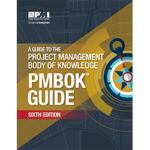
Every project has a backbone—a sequence of tasks that, if delayed, could throw the whole thing off course. That’s the critical path, the lifeline that determines your project’s shortest possible timeline. Mastering it isn’t just a neat trick; it’s how you spot bottlenecks, prioritize resources, and keep deadlines from slipping through your fingers. It’s a game-changer … [Read more...]













